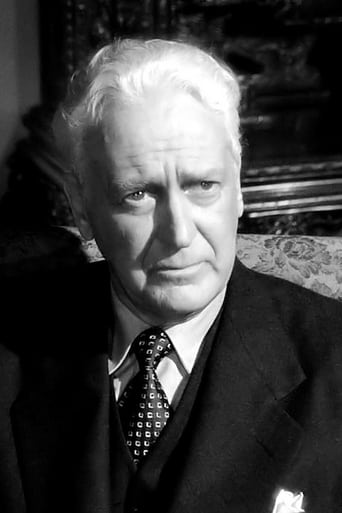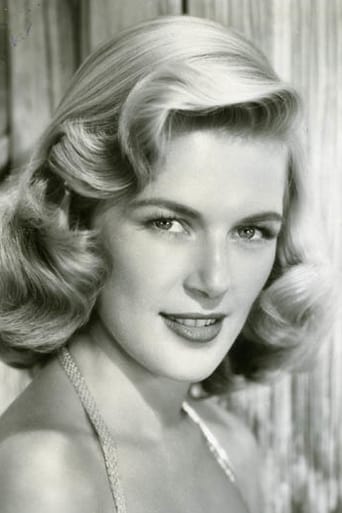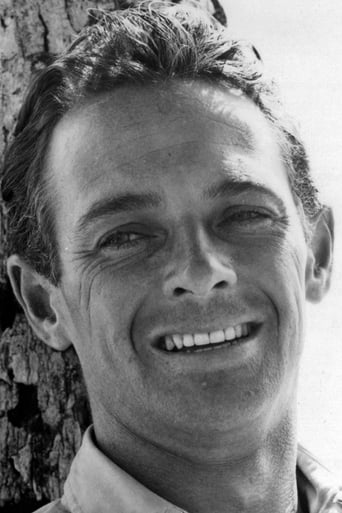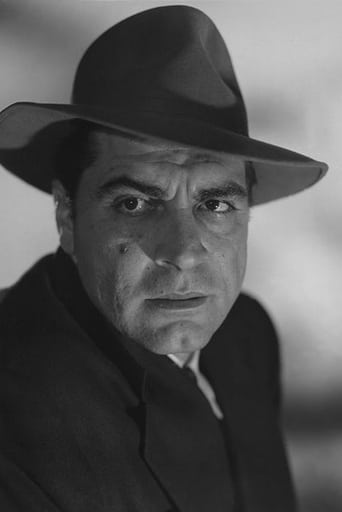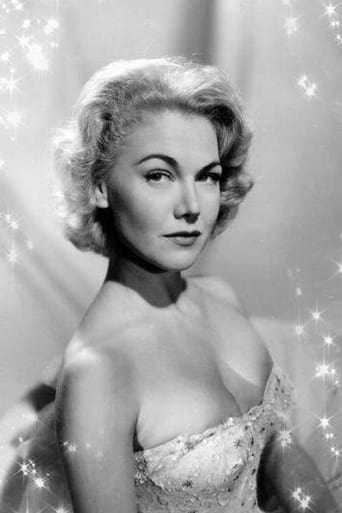Evengyny
Thanks for the memories!
SpuffyWeb
Sadly Over-hyped
ThrillMessage
There are better movies of two hours length. I loved the actress'performance.
TaryBiggBall
It was OK. I don't see why everyone loves it so much. It wasn't very smart or deep or well-directed.
jarrodmcdonald-1
I guess there's a bit of irony in the fact that a man who winds up dead after bowling a strike starts a movie called WHEN GANGLAND STRIKES. Though the mob character on trial for his murder is striking back at society in another way. Meaning he will do whatever it takes to avoid taking the rap, including blackmail that involves a small town prosecutor in Rosedale U.S.A.This was a remake of Republic's earlier crime yarn MAIN STREET LAWYER, in which Edward Ellis played the title character in 1939. Anita Louise costarred as his daughter, though both their characters' names have been changed for the remake. The "updated" version is not very updated at all and still feels like it takes place in the 30s. Though the folksy atmosphere of the sleepy town still translates well, and the slow moving plot which other reviewers criticized, actually helps provide some rich characterization.This is not a terrible film but it's certainly not as great as it could have been. The stylized dialogue indicates the naivete of the times; and the characters' highly idiomatic expressions in certain situations seems like dialogue in one of the studio's popular serials. That's not a slam, because the strange-sounding dialogue gives the film some idiosyncratic charm.Raymond Greenleaf who portrays the old prosecutor is a fine actor. Richard Deacon is on hand as an opposing attorney in the case at the end of the movie, and he is similarly excellent. Marjie Millar, cast as the daughter, is given the central role as a woman whose birth was mired in scandal and who now is on trial for a murder she didn't commit. This was Millar's third and final film. She had been a discovery of producer Hal Wallis a few years earlier. Previously she appeared in two Paramount "A" films for Wallis. An accident sidelined her career and she turned to teaching.I felt Slim Pickens was charming in a supporting role but had a tendency towards overacting. Anthony Caruso as the mob figure was above average. One reviewer tried to link the film to television productions made at this time. But just because character actors in the film also happened to do television doesn't mean this movie is necessarily like a TV pilot or like an episode of 'Perry Mason.' The actors went where the jobs were, and there were arguably more jobs on television at this time. But I certainly wouldn't associate this film with Perry Mason, with Judge Hardy or even with Andy Griffith. It has its own appeal, owing more to the earlier 1939 version the studio made than anything else.
MartinHafer
Bmavc reviewed this film some time ago and compared it to an Andy Hardy movie. Well, I think their analysis is brilliant and I wish I'd said that first! But they're right...this crime film does seem to harken to Judge Hardy and his wise, old fashioned views of law and order.The film begins with Duke (Anthony Caruso) shooting a man dead in a bowling alley. The scene then switches to a small town and follows the exploits of a folksy county prosecutor--a nice man who is more concerned with justice and right versus the letter of the law. How does this relate to Duke's murder? Well, his lawyer manages to get his case sent to a different venue...this nice man's town. Why would they want him to be trying the case? Well, it seems Duke has something on the old man...some bit of blackmail. But this isn't the end of the story...no...there's far, far more to it.As I mentioned above, it sure reminded me of a Judge Hardy film...minus Andy and with the addition of some film noir elements. Anthony Caruso was an amazing character actor and played gangsters as well as anyone...and he is in top form here. Overall, very enjoyable and worth your time.
By the way, this is one of Republic Studio's last films before they folded in the late 1950s. Also, I thought it very unusual that the murder in the opening scene featured a lot of blood...something very rare for movies back then.
django-1
Republic Pictures was in its waning days in 1956 when this strange, unsatisfying crime drama was made by a crew who had made many excellent later serials for Republic. A poor script with clashing moods, unrealistic dialogue, lines written solely to match later plot points that sound odd when spoken in dramatic situations, a "hero" who is not very sympathetic for most of the movie, continuity errors that are surprising for the slick professionals at Republic pictures (characters called by different names, rough edits that don't match what just happened and look like a Tarantino film, etc.), characters whose reactions to important events are not like anything you've ever seen in real life--there are many, many flaws in this film. It could almost be used in a screenwriting class for a "how NOT to write a screenplay" unit. The class could stop the tape every minute or two and point out the flaws. The film LOOKS good as Republic product usually does. The acting is convincing, although even the best actors can't do much with a poor script. On a positive note,the first five and last five minutes of the film are genuinely exciting. The film starts off like a hard-boiled crime film and ends like an over-the-top courtroom drama, but the middle 75% is a slow-moving, "Andy Hardy"-style smalltown drama. Except for Slim Pickens' comic relief and Anthony Caruso as the gangster referred to in the title, the pace is slow.Raymond Greenleaf as a smalltown prosecutor begins as an affable, gentle character out of a Capra film, but his chronic inactivity will make him an unsympathetic character to most viewers. He throws an important case with seemingly no remorse, blackmailed about something that for many viewers would not be a major issue. I felt that the character was too lazy to do anything to resolve the situation about which he was blackmailed. I could go on and on about the flaws and inconsistencies in this film. My fiancee and I spent about an hour discussing a laundry list of problems after the film--more time than we spent discussing OLEANNA, which we saw last week. Finally, the copy on the back cover of this video is completely deceptive. I can't believe the person who wrote the notes even watched the enclosed film. It is NOT a noir film in any way. It is NOT an exciting film, except for brief scenes at the beginning and end. As a devoted fan of Republic Pictures product, I found the film an interesting failure, but I can't recommend it to anyone who is not a serious Republic Pictures collector. There are some fine products from the 1955 and 1956 years at Republic, but this is not one of them and I wonder why Republic chose to issue this on VHS when 9/10 of their crime dramas from the 50s would be far more worthy of release. Watch a favorite film a second time rather than spend any time watching WHEN GANGLAND STRIKES, a title more interesting than the film.
bmacv
The title - and the first few minutes - of When Gangland Strikes promise a rough slice of urban criminality. It's a promise that goes largely unredeemed, because the movie mellows down and sweetens up into a homespun, small-town story that might almost have been made in the 1930s as a vehicle for Lewis Milestone's Judge Hardy.Raymond Greenleaf, who played many a judge himself in small, post-war movies, is the prosecuting attorney in the idyllic hamlet of Rosedale, and known for his leniency toward petty lawbreakers. But a smartly engineered change of venue brings mobster Anthony Caruso into town to stand trial for murder; in his possession is a letter proving that Greenleaf's daughter (Marjie Millar) is in fact the child of a woman serving a life sentence who recently died. Family values win out, and Greenleaf deliberately bungles the prosecution, leading to a petition for his recall.His successor and future son-in-law (John Hudson) decides to reopen the case and, in consequence, a jumbo can of worms involving both his bride-to-be and Greenleaf's complicity in throwing the trial. It also brings Caruso back into the picture, this time with fatal results....Viewers will recognize a cast of familiar faces with unfamiliar names from bit-parts on both big and little screens (Richard Deacon and Slim Pickens among them). It betrays the influence television was having on movies in the climactic courtroom confrontation, which would become a staple of the Perry Mason series to debut the following year. When Gangland Strikes, with its cluster of generic supporting characters and its morally reassuring world, could almost have been the pilot for a TV series that never got off the ground. Who knows? Maybe it was.
